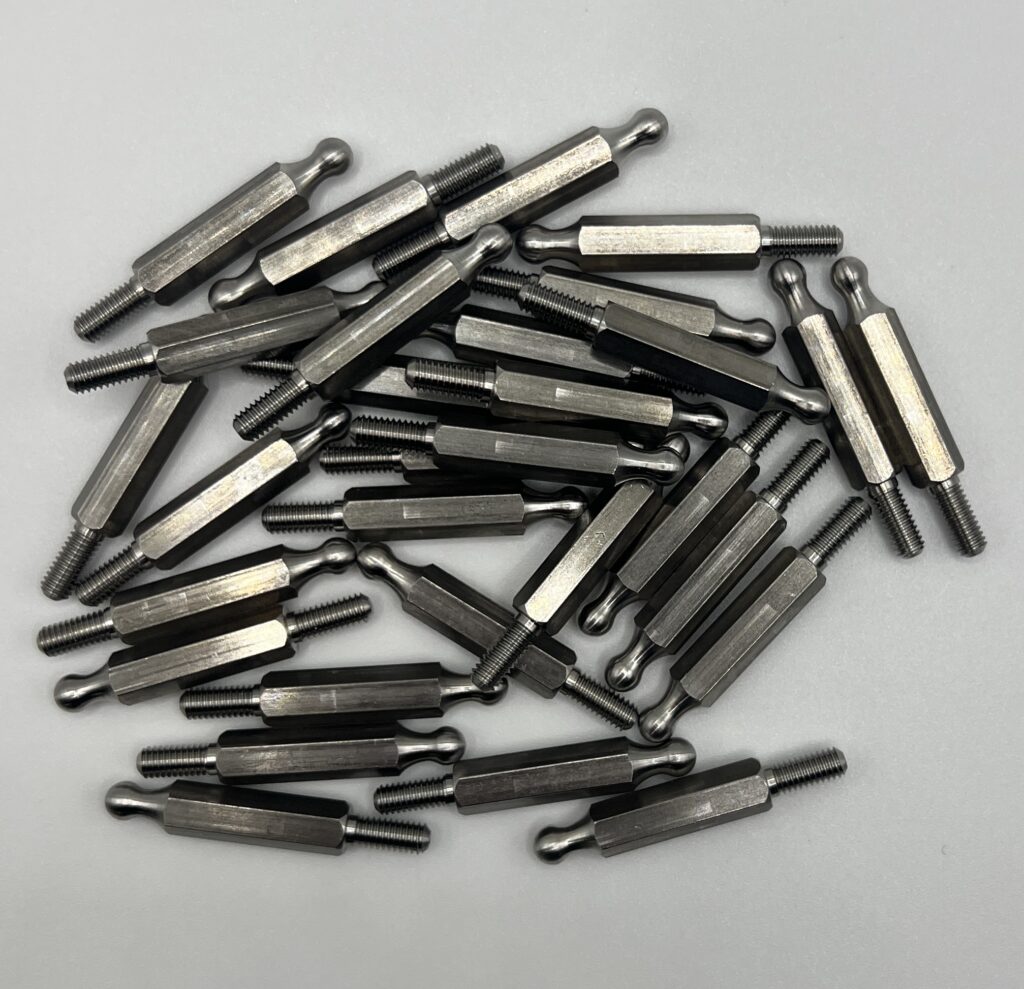A Swiss screw machine is a type of lathe known for producing small, intricate parts with exceptional accuracy. This technology was first created in Switzerland for making watches. It has now become an important tool for modern manufacturing. This is especially true in fields where precision is essential, such as medical devices, aerospace, and car parts.
What Is a Swiss Screw Machine?
A Swiss screw machine is a lathe that uses a sliding headstock mechanism to guide bar stock through a guide bushing. Swiss machines are different from traditional lathes. In traditional lathes, the workpiece stays still while the tool moves.
In Swiss machines, both the material and the cutting tools move at the same time. This design allows the machine to maintain tight tolerances, even on parts with small diameters or complex geometries.
Swiss machines can produce components with tolerances as tight as ±0.0002 inches, often completing multiple operations, such as drilling, turning, and milling, in a single cycle.
What Makes Swiss Different from Other Lathes?
Two main differences set a Swiss screw machine apart:
- The Guide Bushing System: The bar stock is supported close to the cutting tool, which reduces deflection.
- Swiss machines often have several spindles and live tooling. This allows for secondary operations, like cross-drilling or slotting, during the same cycle.
Traditional lathes may struggle with maintaining tolerances on slender parts or completing complex features without secondary setups. Swiss machining eliminates many of those challenges.
Best Applications for Swiss Machining
- Medical device components (e.g., bone screws, surgical instruments)
- Electronic connectors and contacts
- Aerospace fittings and bushings
- Automotive fuel system parts
- Watch and instrumentation components
Materials That Run Well on Swiss Screw Machines
- Stainless steel
- Aluminum
- Brass
- Copper
- Nylon
- Plastics
The key is that these materials can be used as bar stock. They keep their size and shape even under tight machining conditions.
Key Benefits of Swiss Screw MachinesSpeed, Accuracy, and Consistency
Swiss screw machines offer several advantages over conventional CNC lathes, particularly when it comes to:
- High-speed production: Because of their automation and simultaneous operations, Swiss machines reduce cycle times.
- Precision and tight tolerances: Minimal deflection of the material allows for micro-level accuracy, critical for industries like medical and aerospace.
- Repeatability: Once programmed, a Swiss machine can produce thousands—even millions—of identical parts with minimal variation.
These benefits make Swiss machining a popular choice for parts that need precise dimensions.
How to Select a Shop with Swiss Capabilities
Not all machine shops are equipped to handle Swiss machining. Look for the following when evaluating a supplier:
- CNC Swiss machines on-site: Confirm they have dedicated Swiss equipment, not just general-purpose CNCs.
- Experience with small, intricate parts: Ask about their past work with tight tolerances and complex designs.
- Volume flexibility: Some Swiss shops specialize in producing large quantities. Make sure they can handle your required quantities.
- Quality control systems: ISO certifications, first article inspections, and return data all matter. Hibshman, for instance, reports a defect rate of just 0.12% across millions of parts.
Is a Swiss Screw Machine Right for Your Part?
If your part is small, intricate, and needs to meet tight tolerances at scale, a Swiss screw machine might be the best tool for the job. These machines shine when precision, speed, and repeatability are mission-critical.
Before making a decision, consider your part’s geometry, materials, and volume requirements. And make sure your supplier has the capabilities and the track record to meet those demands.
A good partner should provide the right technology and a clear process. This helps achieve consistent results, even on tough jobs.
Need help evaluating whether Swiss machining is right for your component? Connect with a technical specialist to walk through your project.


